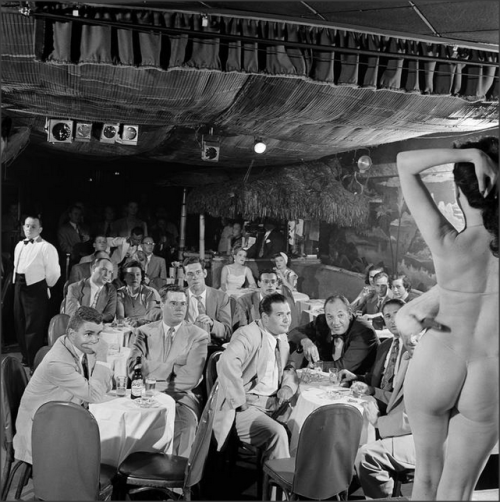#sightseers
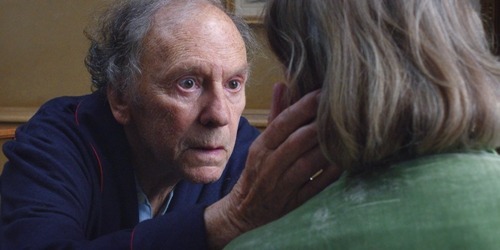
1.Amour (Michael Haneke)
This masterful ode to death and dying is every bit as uncomfortable and unflinching as Michael Haneke’s sombre reputation suggests, but by adding a new found warmth to his repertoire, Amour is a film made remarkable in its simultaneously brutal and tender depiction of humanity.

2. The Master (Paul Thomas Anderson)
Paul Thomas Anderson’s latest opus offers, among other things, an intensive study of men who lead and men looking to be led in post-war America. This cerebral approach to character makes for fascinating cinema, and although its mysteries may ultimately evade, The Master is as breathless a film as one would expect from America’s greatest showman.

3.Tiny Furniture (Lena Dunham)
Building on the already solid foundations of mumblecore with the wit of Woody Allen, Lena Dunham’s painfully frank film about life after graduation is a thoroughly modern and disturbingly relatable examination of alienated youth and wasted talent.

4.Rust and Bone (Jacques Audiard)
Jacques Audiard’s exquisite take on melodrama observes the blossoming relationship between a security guard and a whale trainer in the wake of a career-ending tragedy, but instead of descending into mawkishness, Audiard’s well judged restraint grounds the film in some kind of reality, allowing the central romance to develop in an organic, unsentimental way.

5.The Innkeepers (Ti West)
By combining the twin terrors of ghost stories and existential crises, Ti West has found the perfect home for the thematic concerns of the mumblecore movement with a film that not only functions as A grade horror, but also as a terrifying parable for the modern youth.
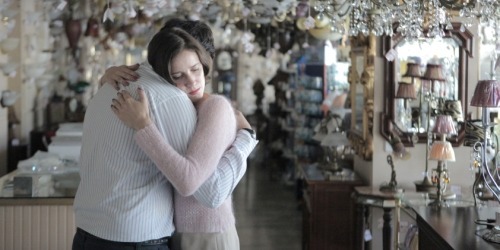
6.Alps (Yorgos Lanthimos)
The Hitchcockian idea of using doppelgangers to help appease grief is an inherently sick one, and Lanthimos’ steady, distant observations of how the frailties of such a process begin to surface are, while elusive, as morbidly fascinating as they are troubling.
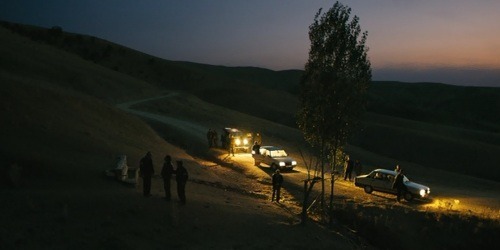
7. Once Upon A Time In Anatolia (Nuri Bilge Ceylan)
With its long, glacial takes, stunning photography and startlingly calm approach to narrative and character, Once Upon A Time In Anatolia offers an unusually lyrical, thematically rich take on the police procedural sub-genre.

8.Laurence Anyways (Xavier Dolan)
The epitome of a hot mess, Xavier Dolan’s vivid dissection of transsexuality, romance and heartbreak is a gorgeously presented, decade spanning emotional epic reminiscent of the work of Pedro Almodovar, and although it lacks control, its bombastic style is more than enough to sustain its ambition.
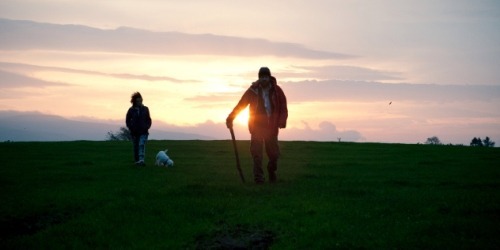
9.Sightseers (Ben Wheatley)
Taking cues from Badlands and the films of Mike Leigh, Ben Wheatley’s third film in as many years is an unabashedly violent, romantic and hilarious romp through the English countryside, blending horror and comedy to wonderful, if wholly British effect.
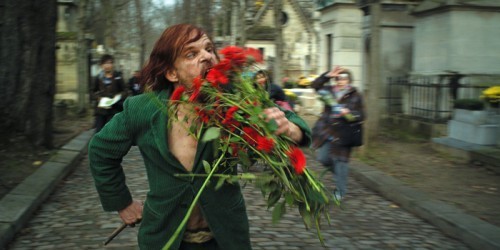
10.Holy Motors (Leos Carax)
Leos Carax’s brazenly opaque oddity almost didn’t make this list, with its absurd, often hideous images serving to baffle rather than engage. But, for better or for worse, Holy Motors has stayed with me more than any other film this year, and that surely has to mean something.
.
NOTE:This list is based on UK release dates.
What’s So Great About That?: Episode 6
Sightseers: Creativity in a Caravan
Ben Wheatley’s dark comedy Sightseers takes a particularly bloody road trip through the British countryside, but with murder discussed in the same breath as creative writing, are we to draw a connection between the two?

Macabre, dark, violent and one of the funniest films of the year, ‘Sightseers’, the brain child of writers Alice Lowe and Steve Oram follows a couple as their caravanning holiday takes a homicidal turn. Directed by 'Kill List’’s Ben Wheatley and starring both Lowe and Oram in the lead roles, it is one of the most exciting British films to emerge in recent years. I spoke to Alice about developing the film, caravanning and improvisation.
WHEN DID YOU GET BEN (WHEATLEY) INVOLVED WITH THE FILM?
Ben got involved about two years ago. Steve and I have been working on it for years and years and we’ve taken it from a live show double-act thing to TV idea to a short film to it just ending up on the internet. None of that really worked because the TV companies rejected it, they said it was really funny but it was just too dark but we were sure that we had made something that was good, we’d had such an amazing response on the internet. We sent it to Edgar Wright and he said that we should make it into a film, from there we took it to Nira Park (Producer) and she helped us to take it to Film 4. They helped to develop it with us and they paid for us to go on a research trip in a caravan! (Laughs)
We met Ben just before he was going to start filming Kill List, we’d seen Down Terrace and loved it and we knew him within the small world of comedy. He just seemed like the obvious fit, with the same naturalistic, improvisational style and there’s definitely an overlap of our sense of humour. Then, the fact that Kill List went on to become this huge hit was just really lucky for us, we kind of thought he might just go off to Hollywood, but he stuck by the project and it just worked really well and he really enhanced the project and gave it a fresh take, because when you’ve been working on something for so many years you need someone to come in and give a fresh spin.
WHY DID YOU WANT TO USE A NATURALISTIC STYLE?
I think because we know that murder is such a dramatic act, the most dramatic act that you can have. We wanted it to be believable, we wanted there to be a balance between that huge drama and I’m always interested in the banality of murder. We were fascinated by that juxtaposition – where you can seem like a really normal person but have these dark secrets. Naturalism, for me, is really, really important, particularly in comedy and we wanted to do something that fit into the British tradition, we wanted to do something that felt domestic and small and intimate.

YOU SAID THAT A LOT OF TV CHANNELS TURNED IT AWAY, WERE YOU EVER SCARED THAT PEOPLE JUST WOULDN’T GET IT?
No, the weird thing was that everyone loved it - that was the dispiriting thing - people would come back to us and say, “I laughed my ass off at this, it’s so funny…but I can’t possibly make it…sorry.” That was the frustrating thing because we were doing something we believed in and knew it was good quality.
Now obviously you have things like Dexter - 10 years down the line and American TV is doing much darker things mixed with comedy. For some reason British TV has become much more squeamish about those sorts of things and even though we used to show Twin Peaks and had Dennis Potter mixing it all up with things like The Singing Detective, but I think today things like that don’t really translate into ratings.
Film gives you more freedom to deal with the complexities of all the issues, we wanted it to be challenging and I think film audiences are much more prepared for that. I now just really want to work in film because there’s much more freedom to surprise people, you don’t have to fit into these little boxes, especially now, British film is doing some very exciting things and I definitely want to try to lever myself into that if possible! (Laughs)
HOW DID YOU RESEARCH FOR THE FILM, YOU SAID THAT THEY PAID FOR YOU TO GO ON A CARAVAN TRIP…
It was hilarious! It’s annoying going on holiday with anyone at the best of times…you have to really pick carefully who you’re going to go on holiday with (Laughs). Spending that much time with Steve (Oram, co-writer and co-star), we’re not in a relationship, we’ve never been in a relationship…it was quite funny being such a close quarters in the caravan and it was actually really valuable for the film. We kind of worked out what makes each other tick, what annoys each other, what dynamic we have as people and the characters are heavily based on ourselves and what we bring out of each other; we wouldn’t have found that out without that trip.
We were also responding to the landscape, it was such a change from London, it was so epic and beautiful and we thought it could really elevate the film, thinking of all the tragedy and drama associated with that environment.
IT HAS HAD AN AMAZING RECEPTION IN SO MANY PLACES, HOW DOES THAT FEEL?
Yeah, it has been great! I keep on expecting people to find it more offensive! We did actually get a really weird question at the Q&A, a woman went, “I think this film is really offensive towards northerners, because I’m northern and I think this is anti-northern.” We just looked at each other and didn’t know what to say, we mostly kill southerners in the film! (Laughs) We were just really flummoxed, coming from the Midlands - you cannot win – you’re not northern and you’re not southern, you don’t have a cool identity and that informed the film in some ways, this sense of being invisible. As a teenager I felt like that and I kind of became a bit of a new age Crusty, there were loads of castles and stuff about… and I just felt like going around in caravans and visiting stone circles…(Laughs)

YOU DEVELOPED THE CHARACTERS WITH STEVE…
Yeah, we just started to talking about family holidays and we just started improvising as these characters. It just came out quite organically, we were in those characters and started having arguments and it just happened so easily and the dark stuff came out quite naturally… (Laughs). At the same time idea felt so right, we just wondered why no one had done it before, and I was scared over the five years that we were developing it that someone would suddenly come along and have the same idea.
HOW DOES YOUR DYNAMIC WORK?
We use improvisation as a tool for writing; I don’t understand how people can do it any other way, it helps in writing jokes and creating a dynamic – you have different motivations as characters, it brings tension and personality. We sit in a room together and go through a whole period of just improvising and then we have work out the logistics of it all.
DO YOU FIND THAT QUITE HARD?
It was definitely a learning process, I feel much more confident about it now. I still don’t really understand what I’m doing but at least I know all the different stages. I’ve written another feature, I’d already finished it by last Christmas because I’ve been around the industry for long enough to know that everyone wants to know what you’re working on next and it’s been amazing how easy it’s been to find producers and people that want to help develop it. It’s sad that we have such a tradition of comedy here but that hasn’t translated to film recently, and I know everyone’s trying to rectify that. At the same time there was this element of us wondering whether we could do it, and now people do trust us and hopefully that will open it up to other writer-performers.

DOES IT FEEL STRANGE LETTING THE CHARACTERS GO AFTER YOU HAD BEEN WORKING ON THEM FOR SO LONG?
Yeah, it’s not like doing a television show where you can resurrect them again and again. We wanted the purity of the film and in some ways I was quite happy to leave them, I want to do a million other things and do characters that are completely different.
I just have to keep making my own opportunities because there just aren’t the roles for women that are that exciting and when there are there are so many actresses vying for them, like Charlize Theron is looking for challenging film parts! They just don’t come along often so I’m just trying to create them myself (Laughs).
CAN YOU TELL US A LITTLE BIT ABOUT YOUR NEXT PROJECT?
It’s called Lilly, it’s about a women who has a boring domestic life and she has a very fertile fantasy world which she lives in half of the time, it’s going to be a real mixture of media. It’s about having an inner world and having a motivation for something other than the life that you’re in, aspiring for something and deciding between that and love. You don’t really get strong, flawed, interesting female characters so I really want to challenge that, like Lars Von Trier get’s a lot of flack but he does create some of the most interesting and flawed female characters – that’s what I want. The screenwriter of Trainspotting once said that the purpose of film is for people to empathise with someone that they never normally would empathise with; film stretches your humanity, people have reasons for being damaged and there are reasons why they end up doing the things they do, it helps enhance our understanding and I think that’s really amazing. There are elements of that in Sightseers,these people are bad but there is still a history behind why they are the way they are, they’re damaged.
WHERE WOULD YOU LIKE TO SEE YOUR CAREER GO?
I sort of like to go from project to project, I’m a bit like a teenager! I need to find something that excites me, I’m not interested in fame or that sort of stuff, although unfortunately that does become a necessary evil if you want to be able to do the stuff you want to do. My whole thing now is daring to do what I want, like Kate Bush she is always daring and doesn’t listen to people who tell her that she can’t do something. I just want to carry on being creative and get a living out of it – that would just be a joy. I’ve just done a radio series and I’m going to do another one, it’s such fun because I get to work with a composer and experiment with sound.
…And I may be directing this next film (Laughs). I’m just open to doing everything, I might even write a novel at some point! Anything I can try to get my grubby paws on, I’ll do.

SIGHTSEERS
Interview: Emma Hurwitz
Portrait: Elliott Morgan
Stills courtesy of Studio Canal

